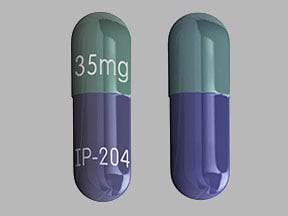My prescription
Edit
35MG, Diclofenac (30 Capsules)
Select pharmacy

CVS
$238.06
COUPON PRICE
Albertsons
$55.74
COUPON PRICE
Walmart
$212.83
COUPON PRICE
Walgreens
$223.82
COUPON PRICEDiclofenac savings card
Show this card to your pharmacist
Albertsons
$55.74
BIN
ID
PCN
GRP
019876
LH7B966F57
CHIPPO
LHX
Powered by
More prescriptions for rheumatoid arthritis
More prescriptions for rheumatoid arthritis
Price history for Zorvolex (brand) & Diclofenac (generic)
30 Capsules, 35MG
Average retail price for Zorvolex
Average retail price for Diclofenac
Average SaveHealth price for Diclofenac
Our price history data is based on aggregated prescription data collected from participating pharmacies in America. Our prescription data updates daily to reflect the latest price changes. If you notice a missing data point, it means there wasn't sufficient data available to generate a monetary value for that date.
We analyzed Diclofenac prices for (35MG, 30 Capsules) over the last 12 months. The average retail price was $644.63, while the average price using the SaveHealth discount card was $213.47. That's a savings of approximately 66.88% when using our Diclofenac coupon.
Compared to the generic version, Zorvolex had an average price of $889.57 over the same time period. With the SaveHealth savings card, Diclofenac is 76.00% cheaper on average than Zorvolex.
*Retail prices are based on pharmacy claims data, and may not be accurate when we don't have enough claims.
Diclofenac dosage forms
Dosage Quantity Price from Per unit 35MG 30 Capsules $55.74 $1.86 35MG 90 Capsules $152.22 $1.69
| Dosage | Quantity | Price from | Per unit |
|---|---|---|---|
| 35MG | 30 Capsules | $55.74 | $1.86 |
| 35MG | 90 Capsules | $152.22 | $1.69 |

